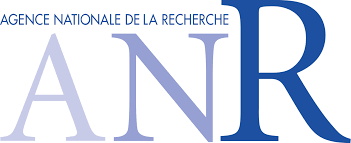Leads: Anne de Vernal, Elizabeth Thomas and Émilie Gauthier
WP5 will capitalize on results of previous WPs to integrate multidisciplinary perception and representation of global change in the ASNA. It aims at providing an integrated picture from objectively analyzed climate and paleoclimate to perception by humans and numerical modelling. The central issue we address here is the relationship between climate variations, extreme events and cultural changes, including population movements and artistic representations. A subsidiary issue is the vulnerability of communities.
The analyses of proxy-based estimates of climate parameters (surface air temperature, precipitation, sea-surface temperature, sea ice cover) will allow to address these questions:
- How has regional climate changed during the late Holocene across the ASNA region?
- What could be the most determinant forcing and mechanisms accounting for climate variability locally and regionally?
- What was the interplay between climate and sea ice, and how did this influence ecosystem functioning, notably in coastal settings?
Main tasks
Integrating knowledge will be done through inter-disciplinary questions, which will be the topic of collective papers. One will be “Is there a threshold or tipping point in climate that explains cultural transition across NA through time?”
Archiving paleoecological data (chironomids, pollen, spores, diatoms, dinocysts, etc.) and climate-paleoclimate data, and developing of a web-interface for data consulting.
Building a database of contemporary and traditional design solutions for circumpolar cultures. We seek to better define and contribute to the parameters of good northern design.
Organization of workshops and panels bringing together specialists, representatives of governmental and non-governmental organizations, students and partners, to address questions such as the cultural contribution to Arctic climate studies or the ethical aspects of indigenous contribution to culture and climate studies. For these workshops, multilingual publications will be produced and published, notably by the Presses de l’Université du Québec within the books series “Droit de Pôle”.
Outreach and educational activities include (1) a general public book about how climate changes of the past are documented and how such knowledge may help communities to prepare for the future, (2) multisectorial Nordic day symposium organized in collaboration with the International Laboratory for the Comparative Multidisciplinary Study of Representation of the North and the Portail de la recherche nordique et arctique de l’Université du Québec à Montréal to bring together researchers, professors, artists and students, (3) discussions with northern communities and general public for developing an international cooperation, training of graduate students, cooperation with civil organizations, cross-cutting links with science and regional planning, as well as dissemination objectives to the scientific and general public.






